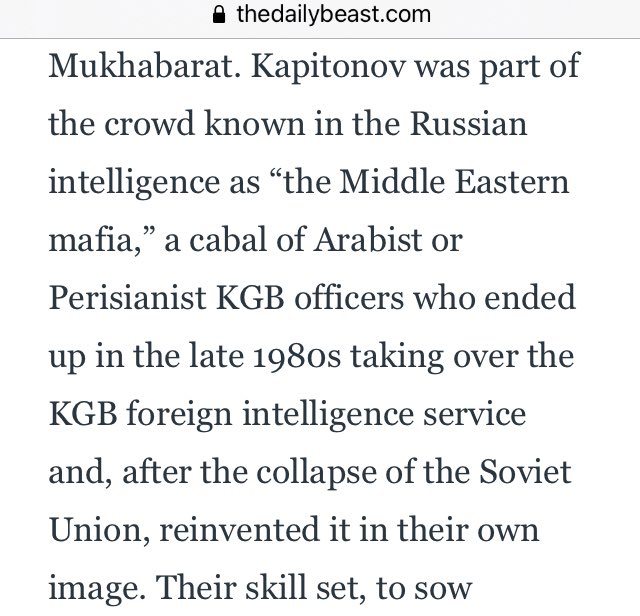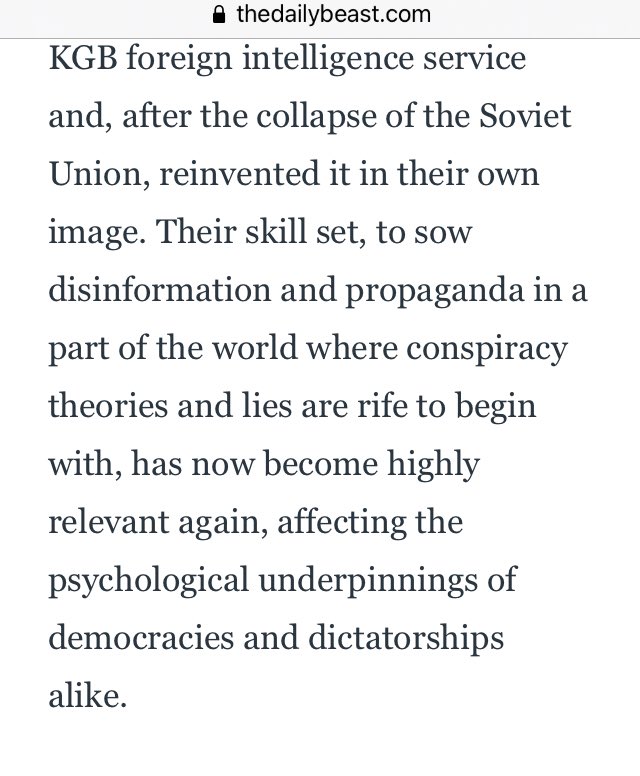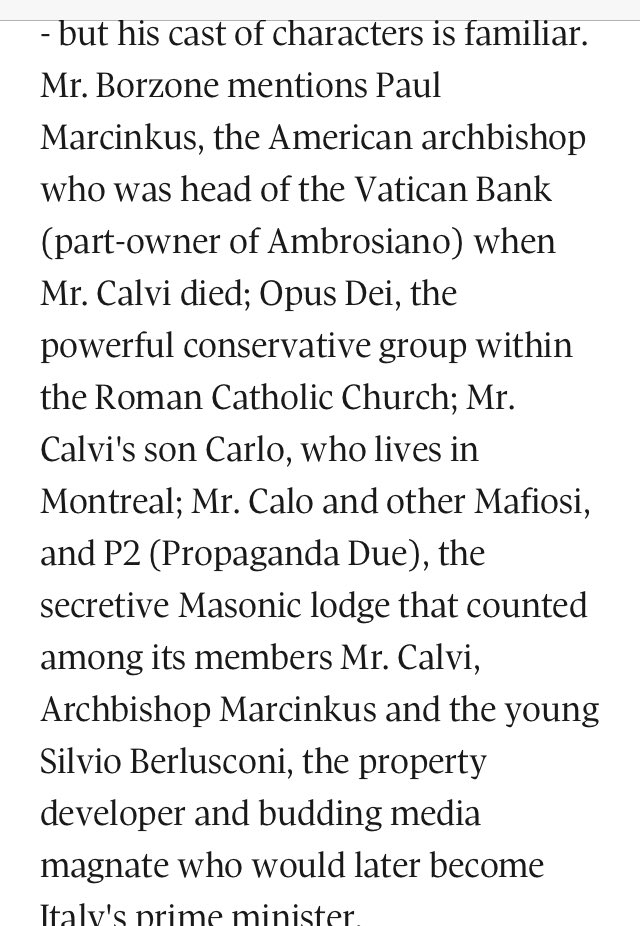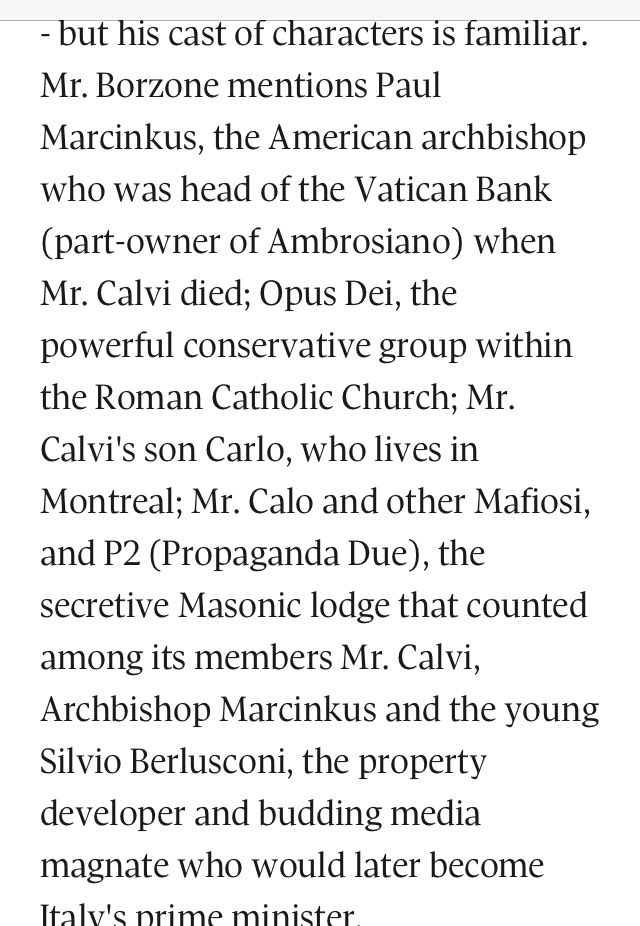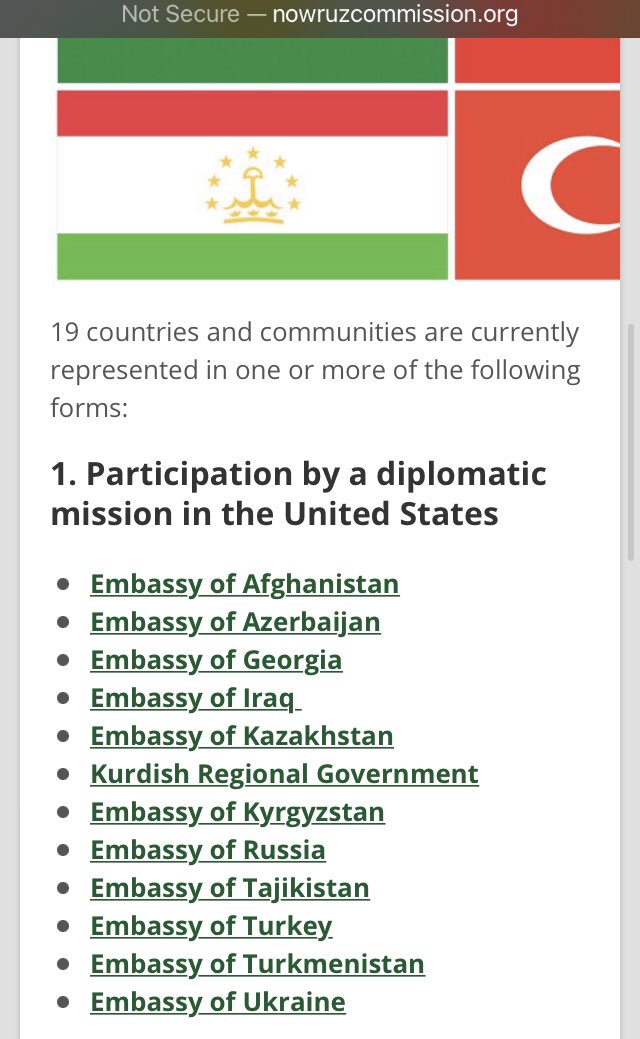
“The KGB will help me [get to the U.S.],” the confident swindler replied. The Soviet secret police had helped his friends get to the United States by obtaining exit visas to Israel, he said, and he expected the same. 
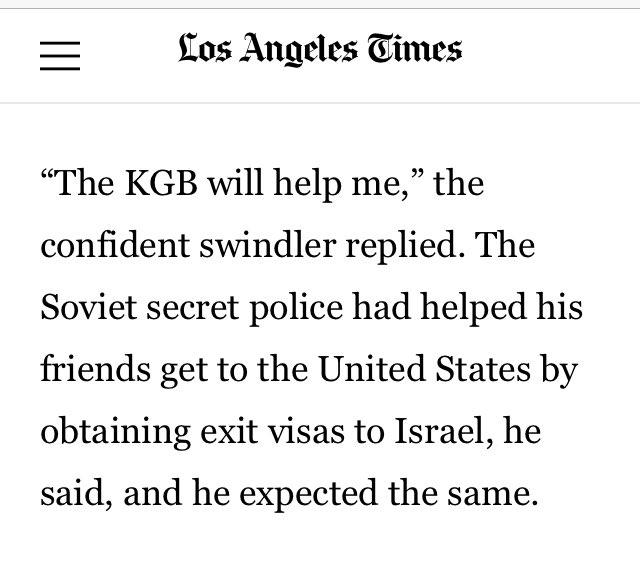
Sharansky’s encounter, described in a recent interview, reflects growing evidence that the KGB has systematically helped criminals leave the Soviet Union. And U.S. officials say the Kremlin appears to have, from its point of view, two eminently practical reasons for doing so: 
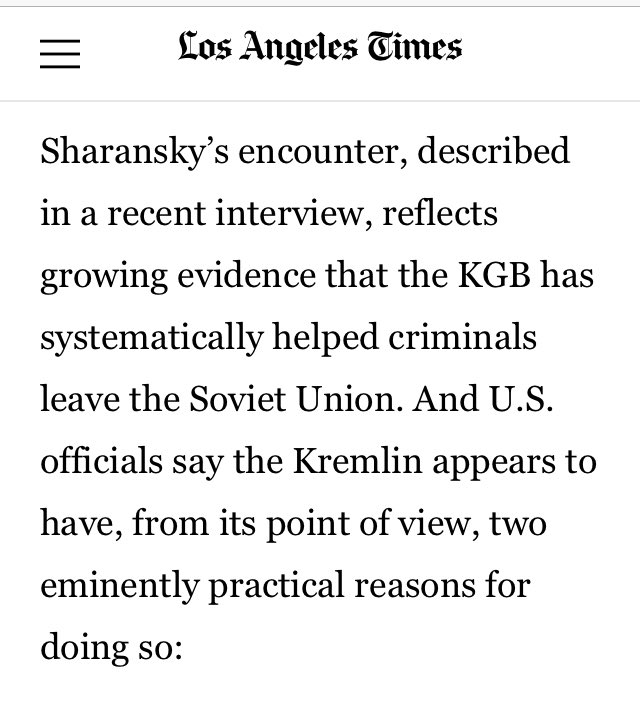
1. To be rid of the criminals--much as President Fidel Castro did when he opened Cuban jails during the Mariel boatlift a decade ago.
2. To create a network in the West for their agents.
2. To create a network in the West for their agents.
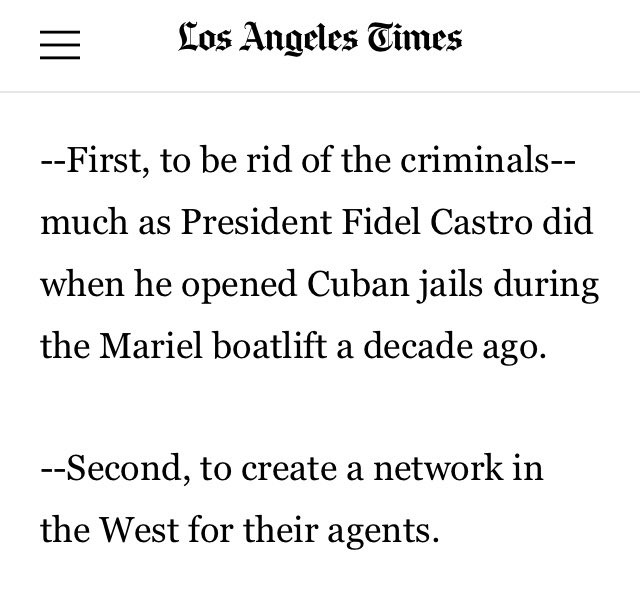
Under Soviet law, members of ethnic and national minority groups who have relatives in the West are theoretically allowed to emigrate to their “historic homeland.” 

Soviet Jews make up by far the most prominent group seeking to take advantage of this rule, but ethnic Germans, Armenians and others are also sometimes allowed to leave. 
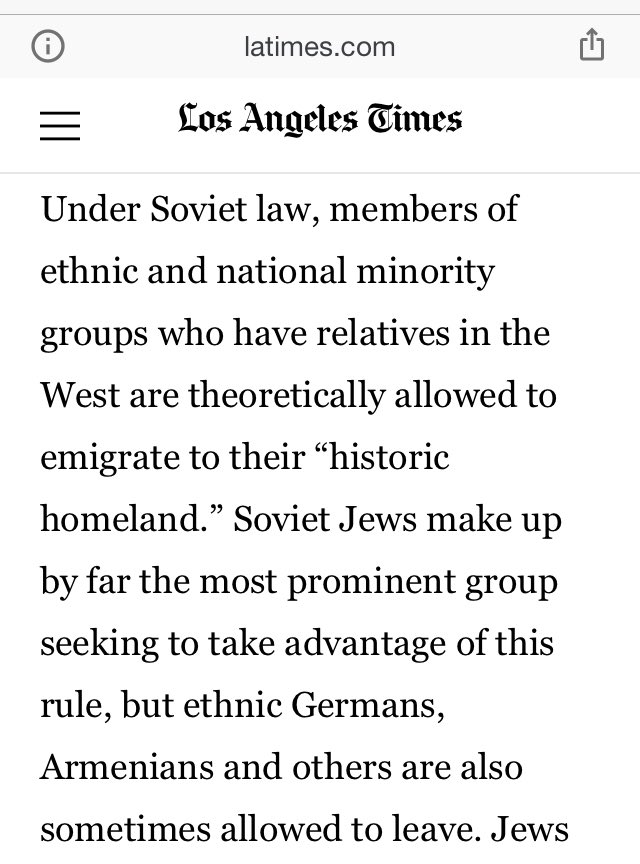
Jews get permission to go to Israel but most now come instead to the United States, where they also have relatives. 
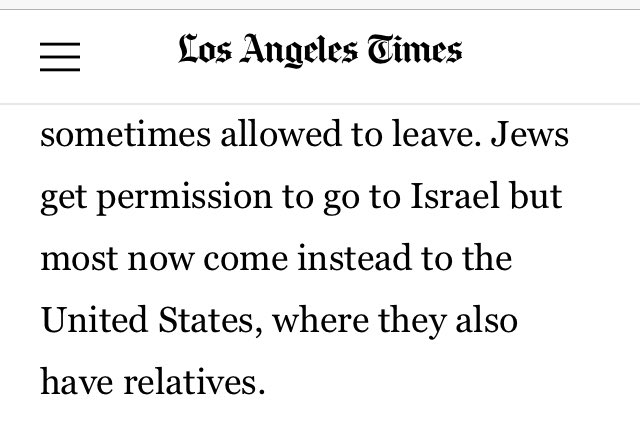
Some of these emigres embark on or continue lives of crime here as part of groups known to U.S. law enforcement officials as “the Russian Mafia” and “Russian Jews.” 
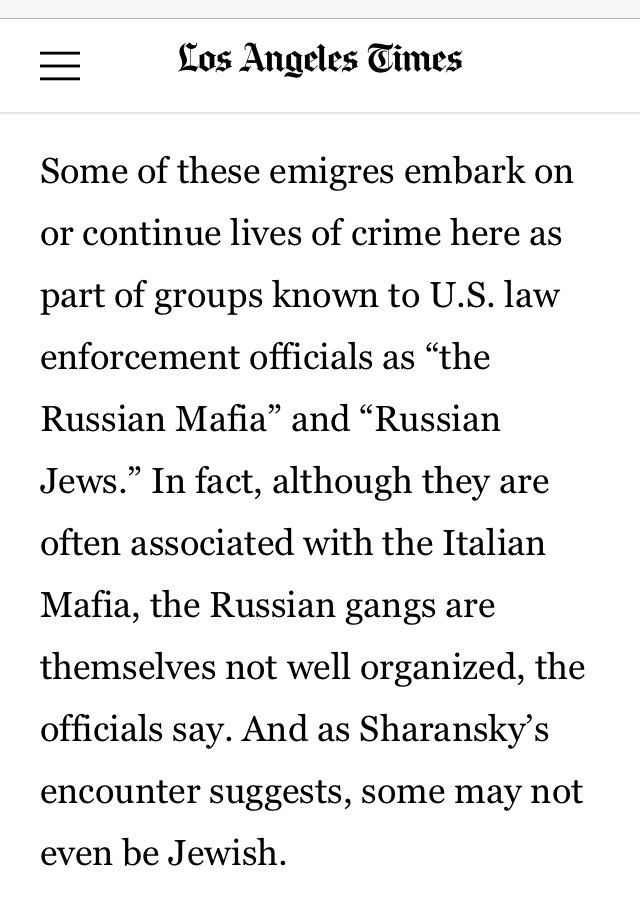
In fact, although they are often associated with the Italian Mafia, the Russian gangs are themselves not well organized [note: this is circa 1988], the officials say. And as Sharansky’s encounter suggests, some may not even be Jewish. 
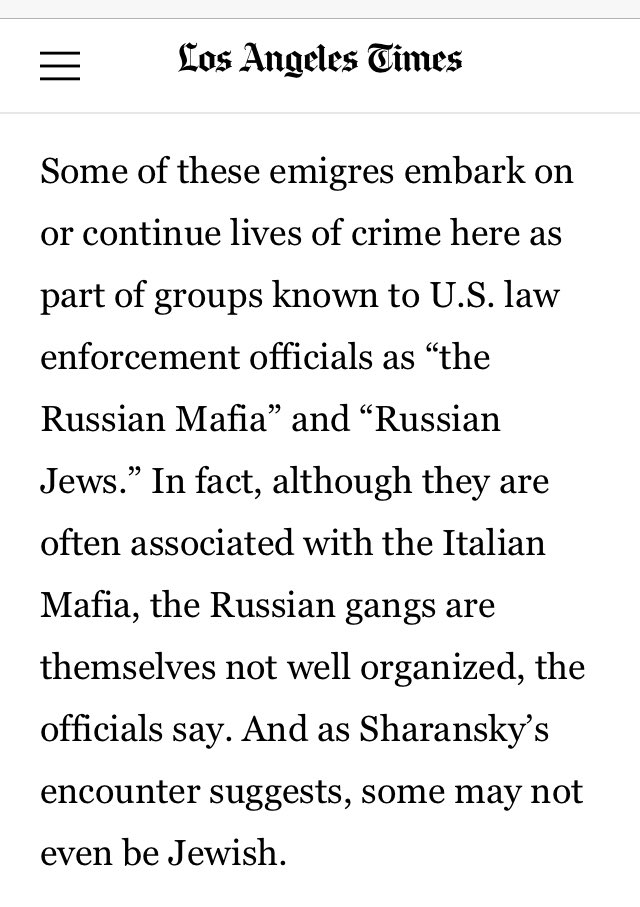
“Soviet yes, but Jewish, I’m not so sure,” said a Brooklyn district attorney’s aide who deals with criminals in the Brighton Beach area, where many Soviet emigres now live. 
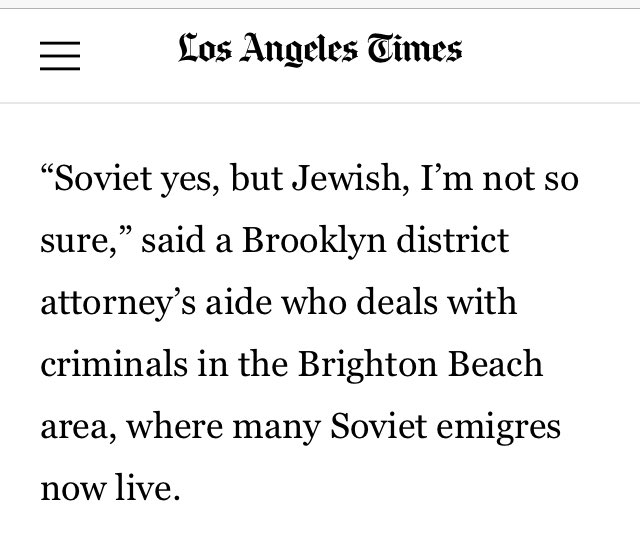
According to a report by the President’s Commission on Organized Crime, the more than 200,000 Soviet immigrants who arrived over the last two decades “included a significant number of criminals who were forced to leave Russia.” 
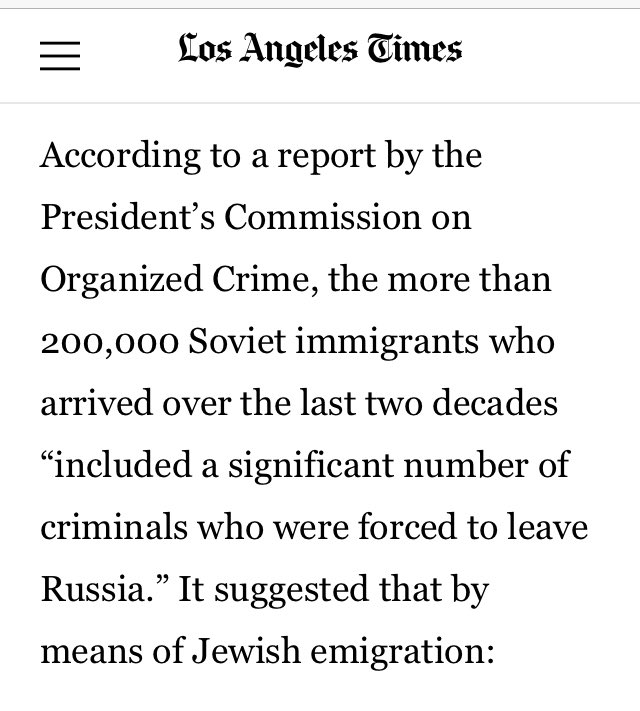
“The Soviet Union attempted to empty their prisons and rid their society of undesirables, much as (Cuba’s) Fidel Castro did several years later during the Mariel boatlift. . . . Some agents of the KGB were included among the large numbers of Russian emigres. 
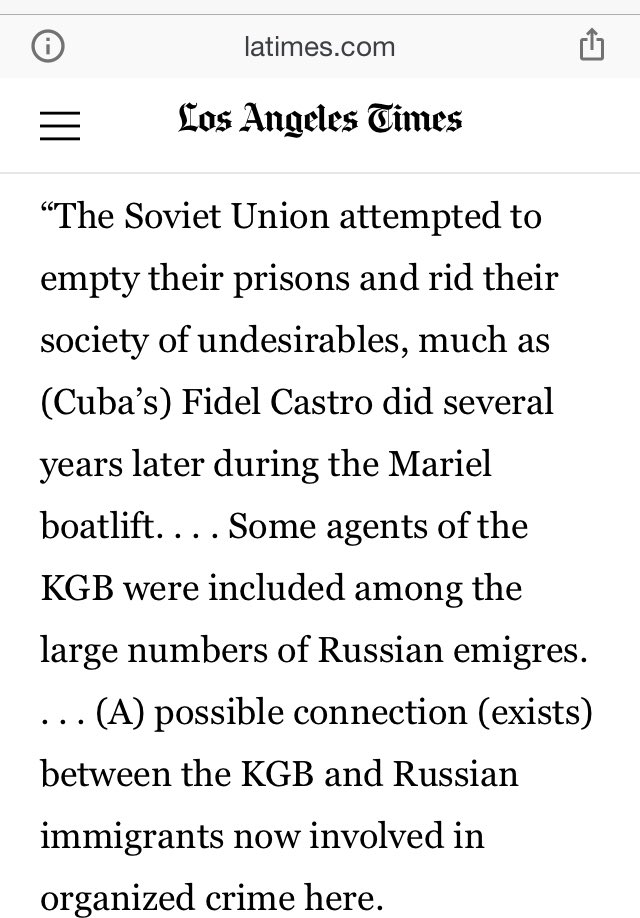
🚨 (A) possible connection (exists) between the KGB and Russian immigrants now involved in organized crime here. 
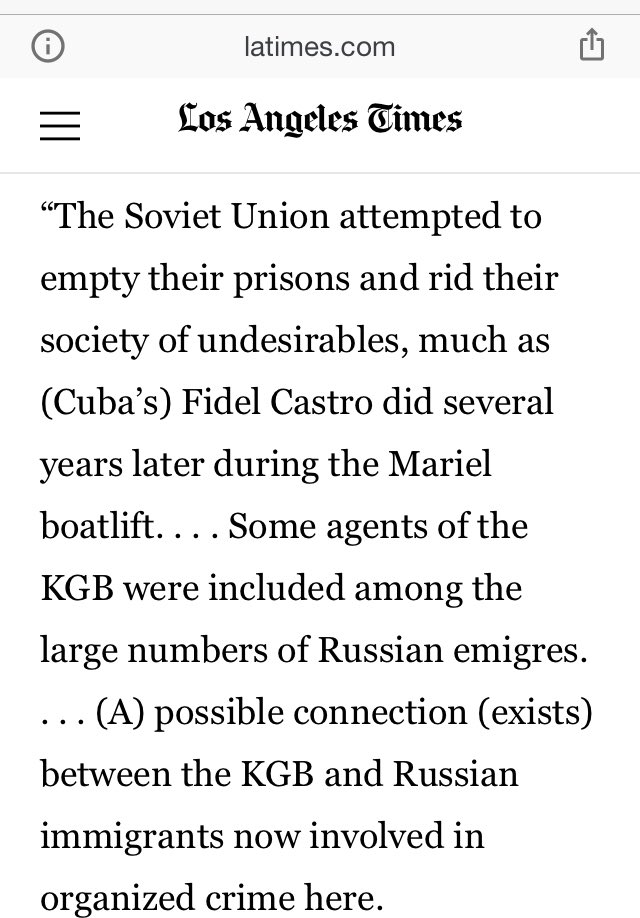
“Approximately 12 Russian organized crime groups” exist in New York, with other groups in Los Angeles, Philadelphia, Cleveland, Chicago, Dallas, Portland, Boston, Miami and San Francisco, the commission said. 
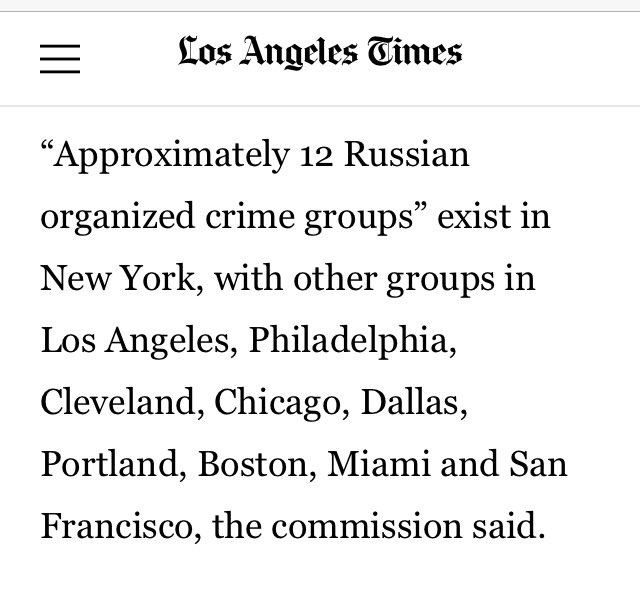
🚨Western counterintelligence agencies have long suspected that the KGB “salted” the emigres with their agents. One such plant was uncovered in December in Israel when authorities arrested Shabtai Kalmanovich, 46, and alleged that he had spied for 14 years. 
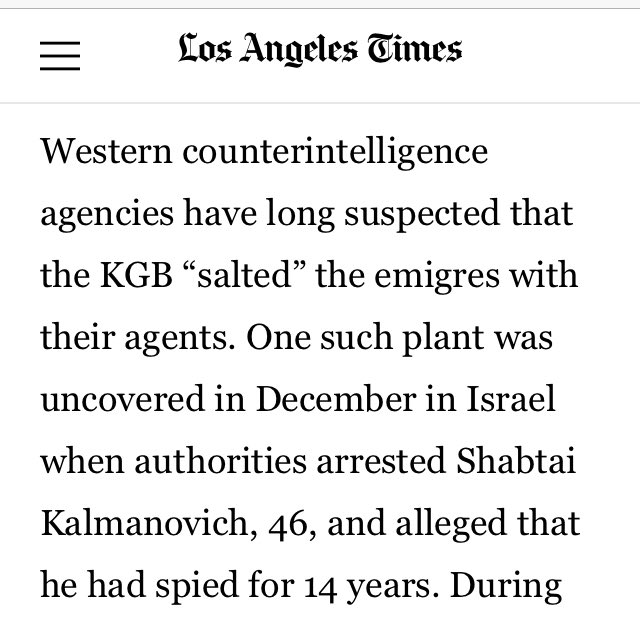
During that time he had worked briefly for a member of the Israeli Knesset (parliament) and, during a period in which he worked as an international businessman, he reportedly helped in at least one U.S.-Soviet spy trade. 
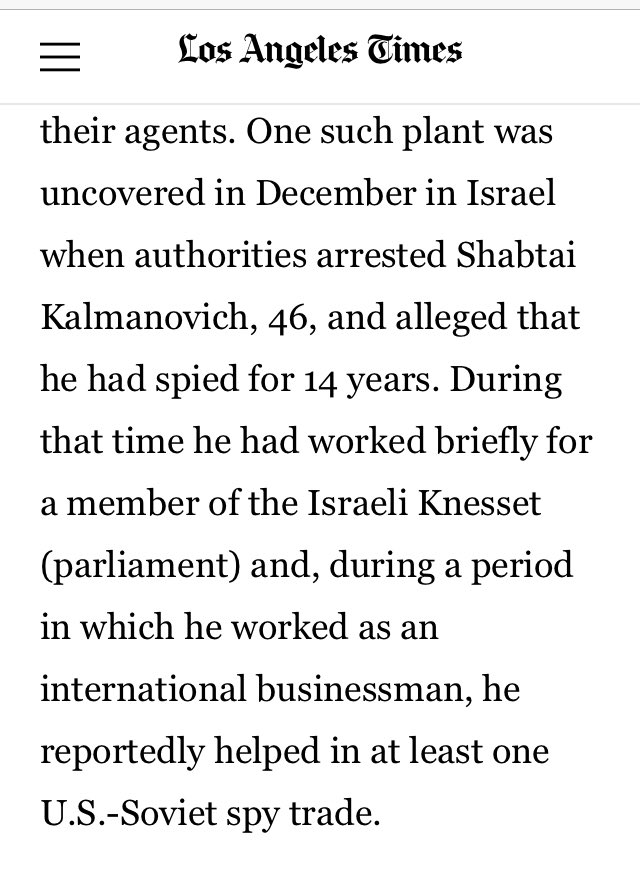
In the most celebrated American case involving the KGB and Soviet emigres, Nikolai Ogorodnikov, 55, and his wife Svetlana, 36, were convicted of conspiracy to commit espionage in 1985, along with renegade FBI man Richard W. Miller in Los Angeles. 

Miller, whose FBI duties consisted of surveillance of the Russian community, was allegedly recruited by the Ogorodnikovs to work as a KGB agent. 
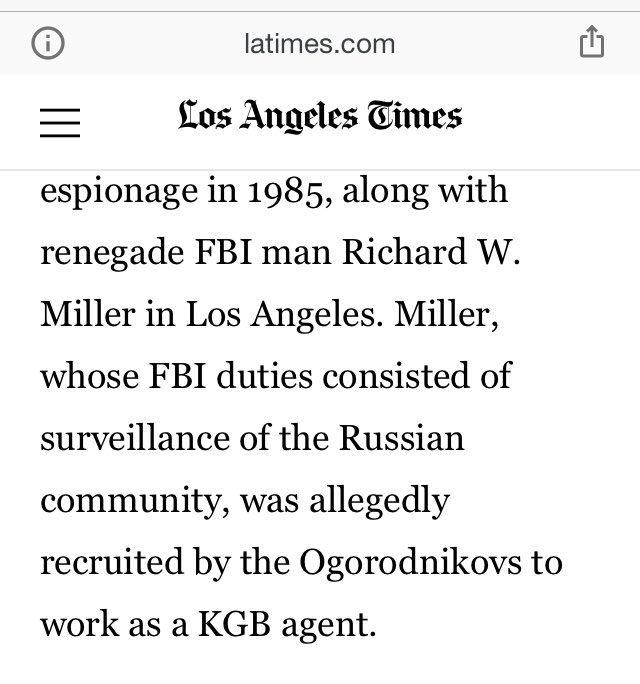
U.S. Atty. Robert C. Bonner, who prosecuted the case, offered two possible explanations for Ogorodnikov’s ties to the KGB: “He was planted before he left the Soviet Union,” and he might have been given a Jewish identity as a cover. 
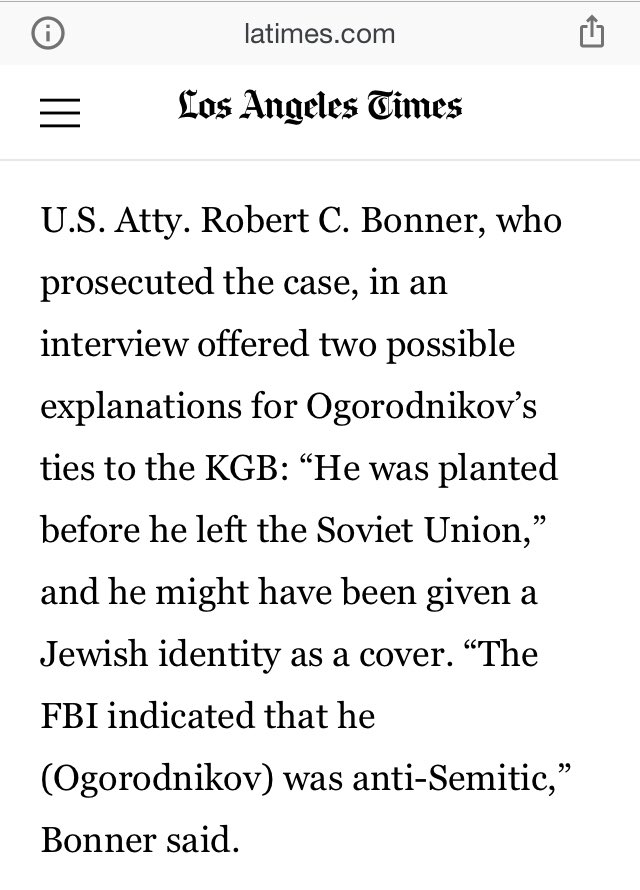
Or alternatively, Bonner speculated, Ogorodnikov was allowed to emigrate because of his criminal record. Once here, Ogorodnikov had a change of heart and “intensely” wanted to return to the Soviet Union, where his mother still lives, and “had to earn it” by serving the KGB… 
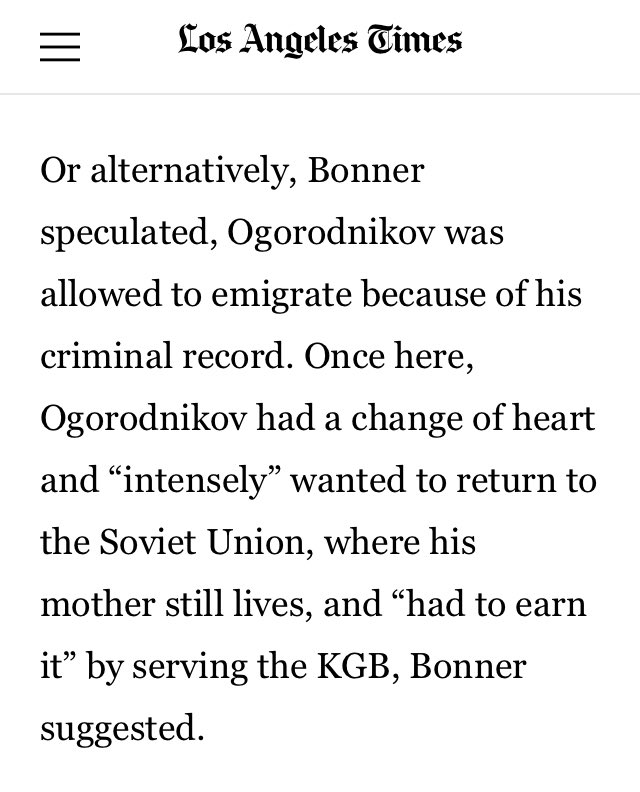
Neither of the Ogorodnikovs seemed educated or stable enough for elaborate espionage work, but the [KGB] would want a network of relatively unsophisticated helpers in the Los Angeles area, according to Assistant U.S. Atty. Russell Hayman, the co-prosecutor in the case. 
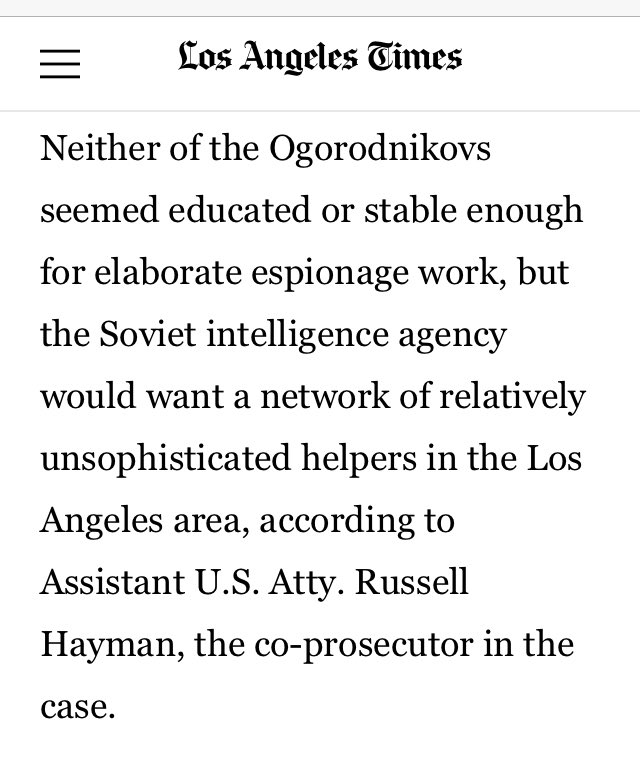
“The Soviets don’t have legal spies (those working as diplomats of an embassy or consulate) to service this community,” Hayman said. “They have to rely on illegals or agents they recruit.” 
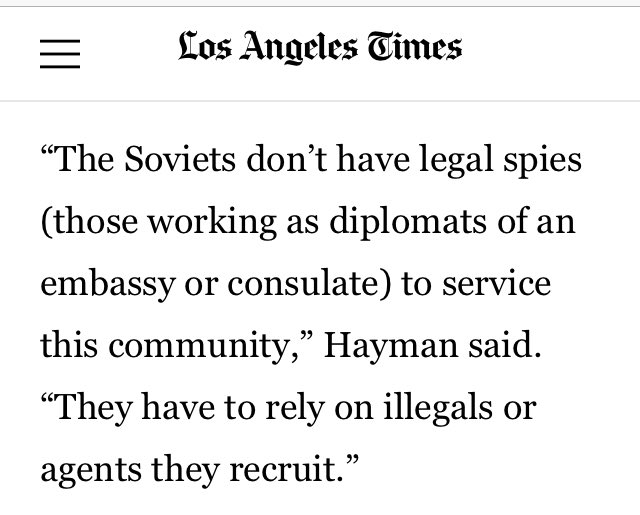
“All criminals in Soviet jails are extremely ripe for KGB recruitment,” said a former Soviet human rights dissident who himself served eight years in prison. “They say, ‘You want out, just sign this paper,’ ” he explained. 

Once released, the criminal usually becomes an informer inside Soviet society or a potential agent for the KGB if he emigrates. 
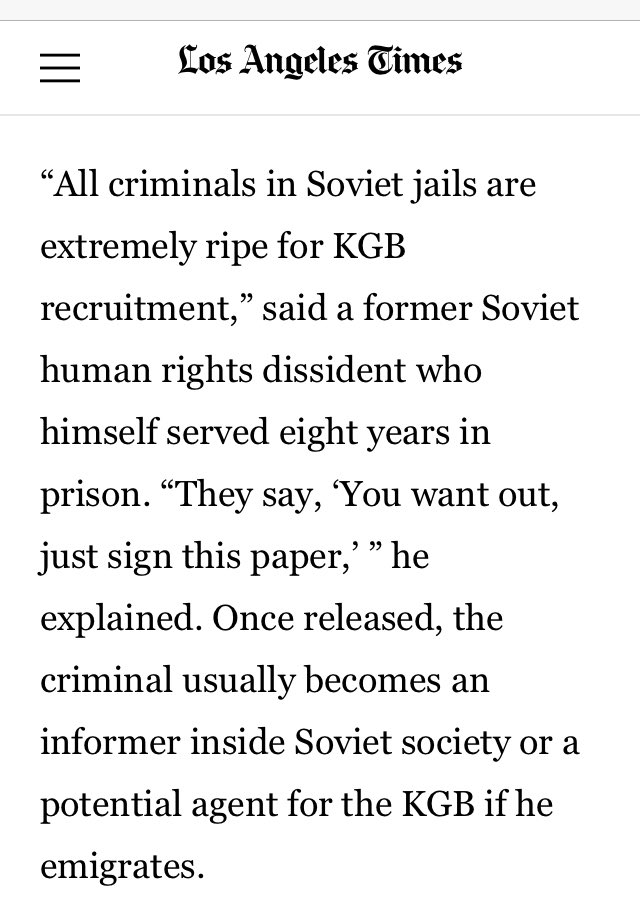
Israeli counterintelligence officials regularly but quietly invite Soviet emigres to come forward if they have been compromised by the KGB, according to this former dissident. 
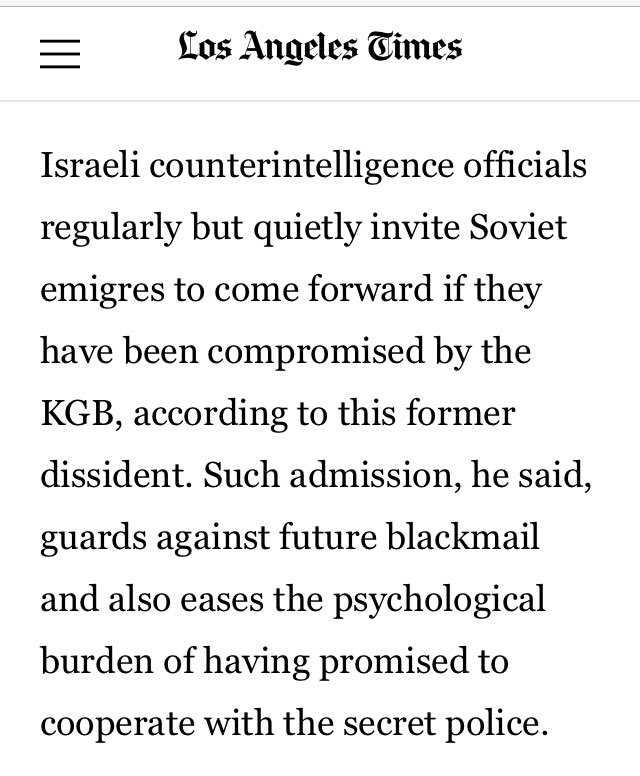
“I think there are many such people in the United States now,” said the former dissident. “Probably few are ever activated (by the KGB). Many of them do not respond, particularly if they do not still have relatives back in the Soviet Union. But they are there.” 
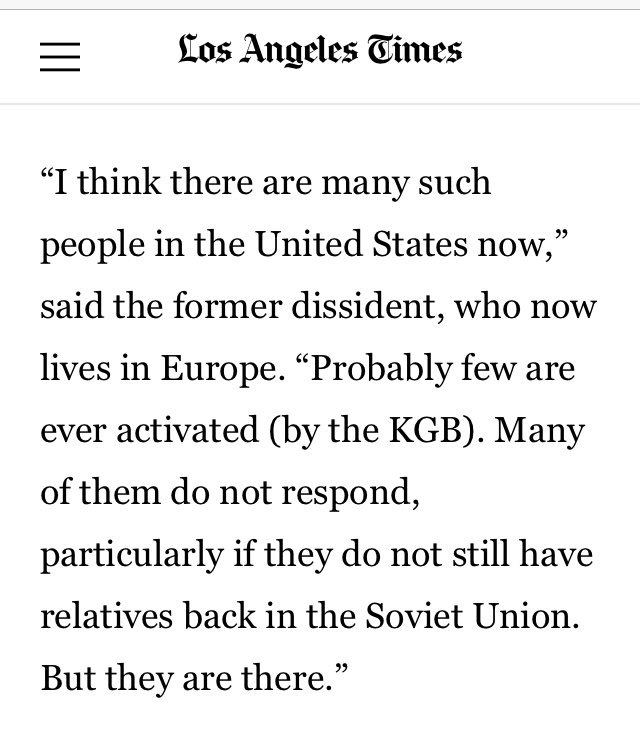
The Organized Crime Commission and various federal and local law enforcement agencies said Soviet emigrants engaged in crime here often steal jewelry, furs, electronics equipment and sporting goods, although incidents of drug trafficking, extortion and fraud were also found. 
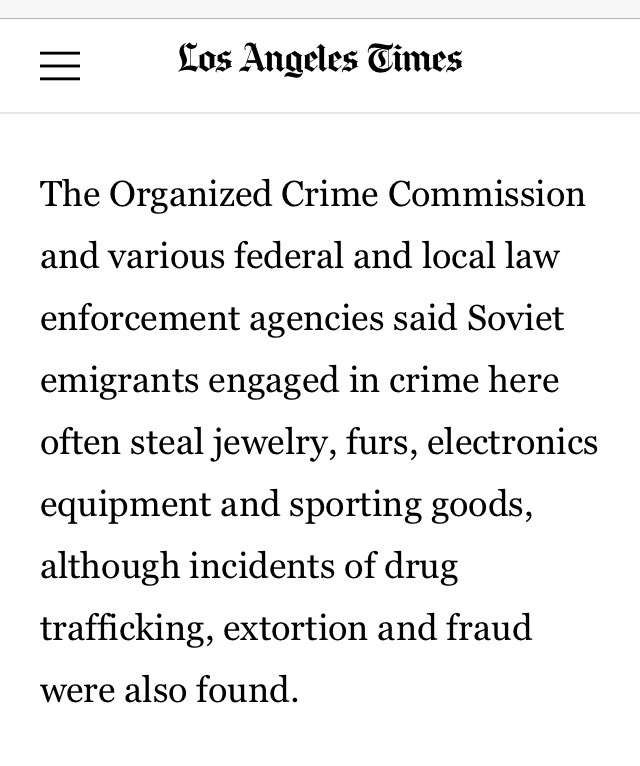
The American Express Co. lost $2.7 million in nine months of 1984 alone in credit card fraud to Russian gangs, the commission reported. A company spokesman declined to provide an up-to-date figure, saying such information is normally not made public. 
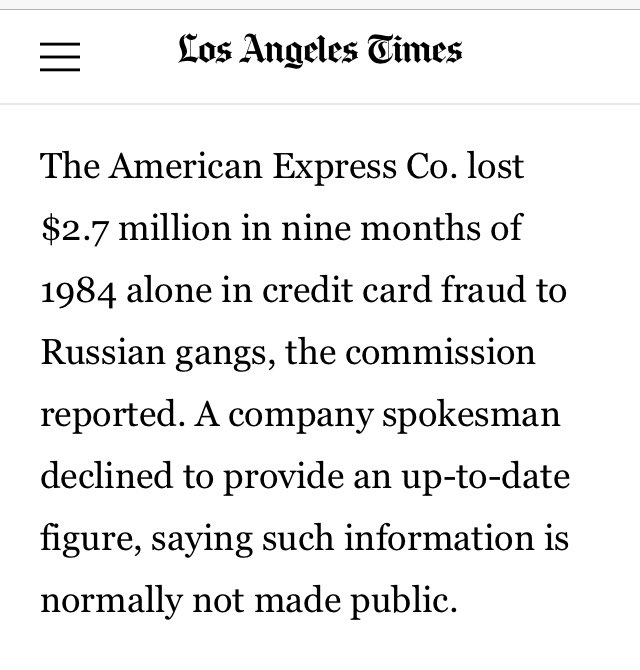
The Russians are “intelligent, professional criminals” who, having experienced Soviet police & prisons, do not fear U.S. authorities, it reported. Many law enforcement officials confirmed this view; Ogorodnikov said his Phoenix prison was “a kindergarten” compared to Soviet jails 
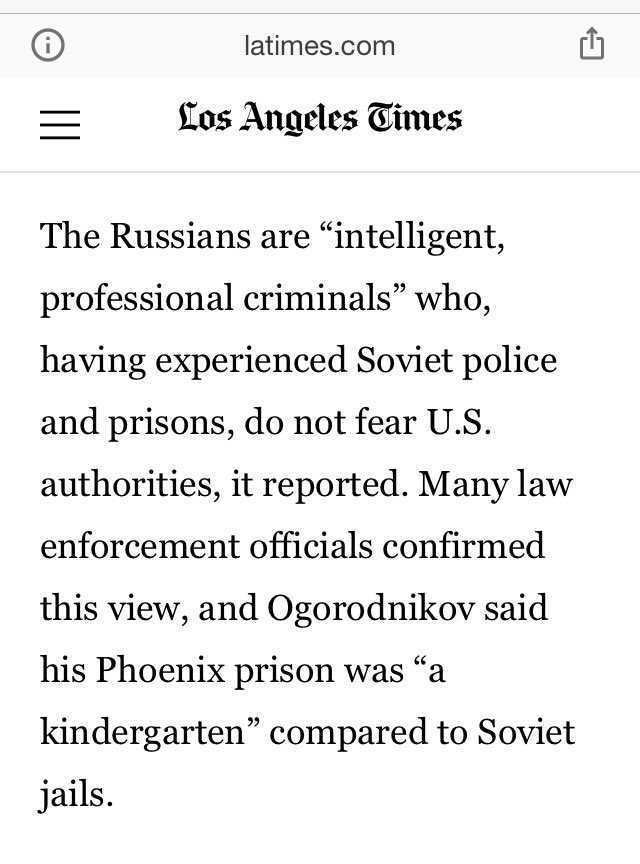
Russian gangs in New York have been linked to the Genovese Mafia family in insurance fraud & drug deals, and with the Colombo family in New York & Pennsylvania conspiracies to evade tens perhaps hundreds of millions of dollars in gasoline taxes through a series of bogus companies 
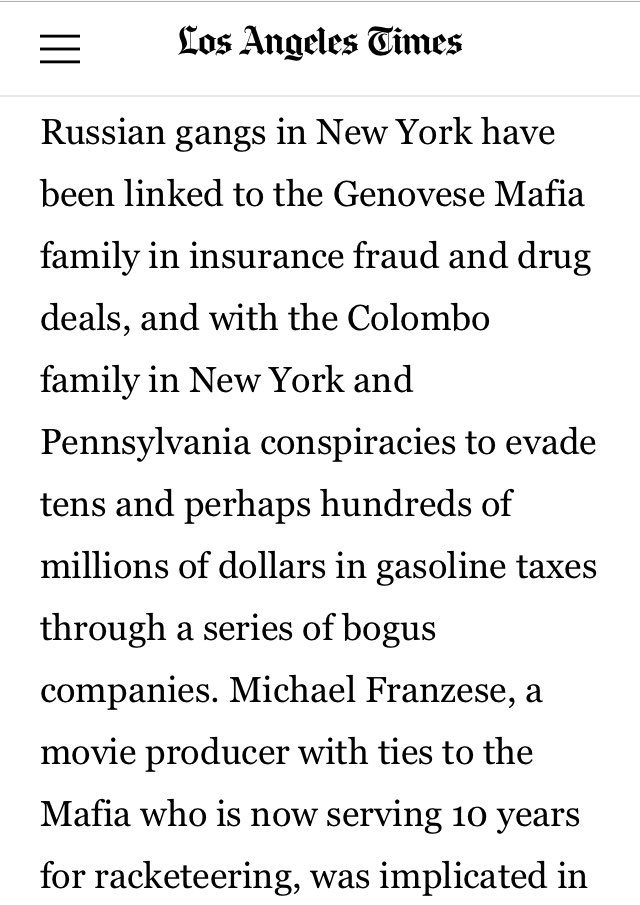
Murders associated with organized crime occur in Brooklyn periodically. Ex: Yuri Brokhin, author of “Hustling on Gorky Street,” which dealt with crime in Moscow, was killed with a small-caliber bullet to the back of his head. Police found $15,000 cash untouched in his apartment. 
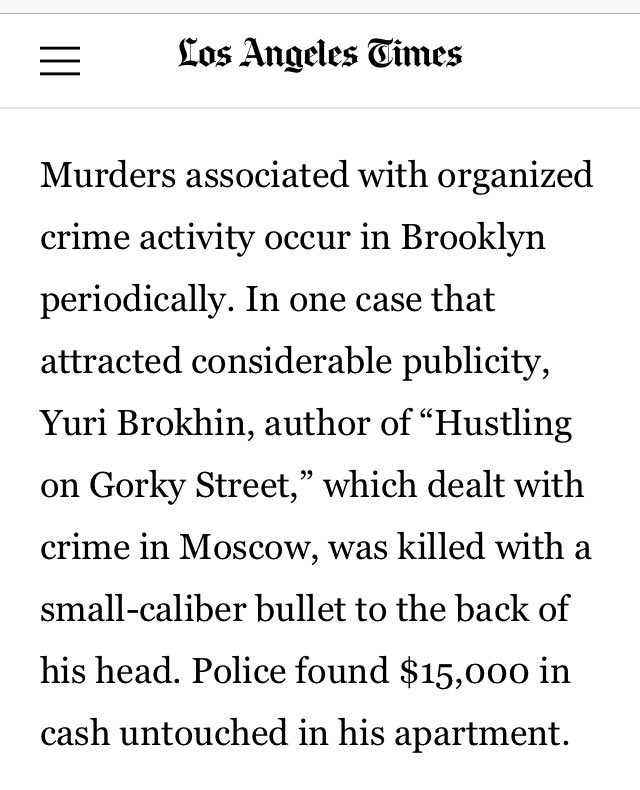
Part of the reason that Soviet criminals enter the United States freely is that Soviet authorities refuse to provide criminal files on emigres, and U.S. authorities waive the requirement for detailed explanations of arrests in such cases. 
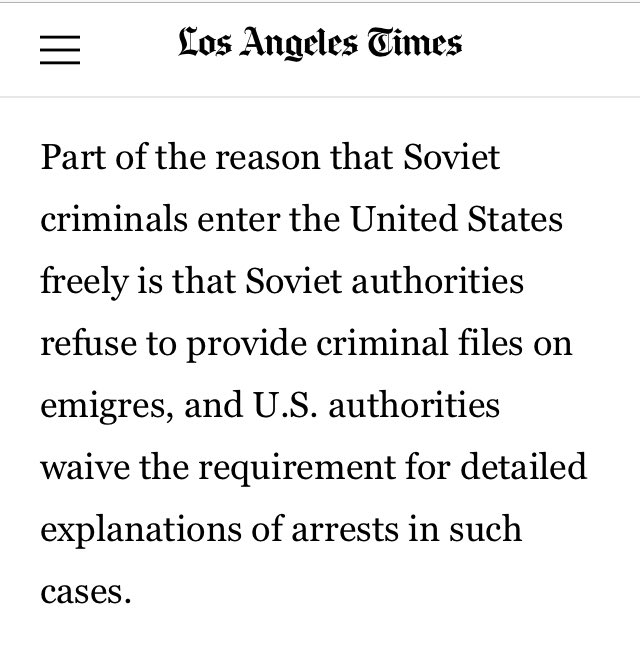
Ruth Van Heuven, with the State Dept’s Bureau of Consular Affairs, said: “It is not possible for people coming from the Soviet Union to get copies of their police or criminal records. The requirement is waived for them” if they come directly from the Soviet Union. 
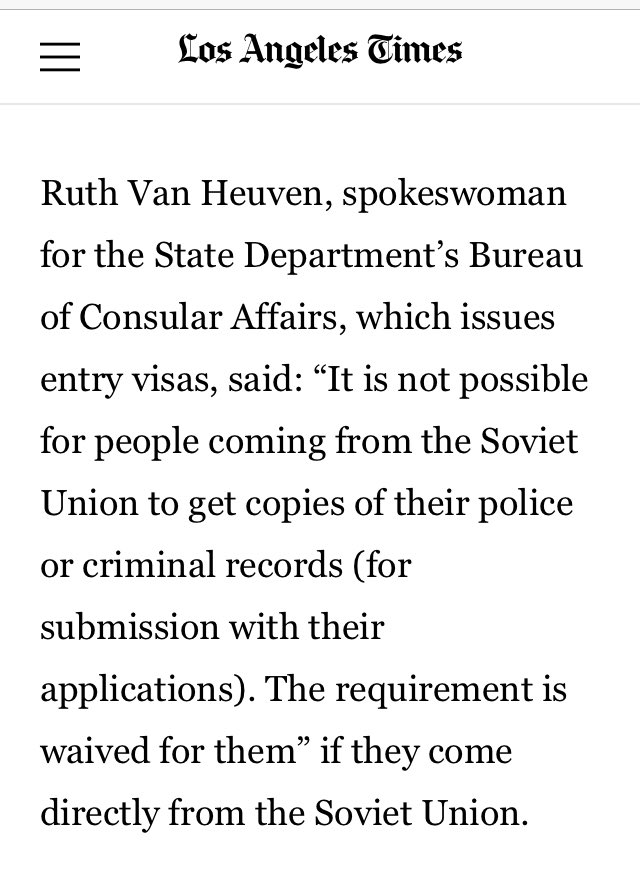
• • •
Missing some Tweet in this thread? You can try to
force a refresh


